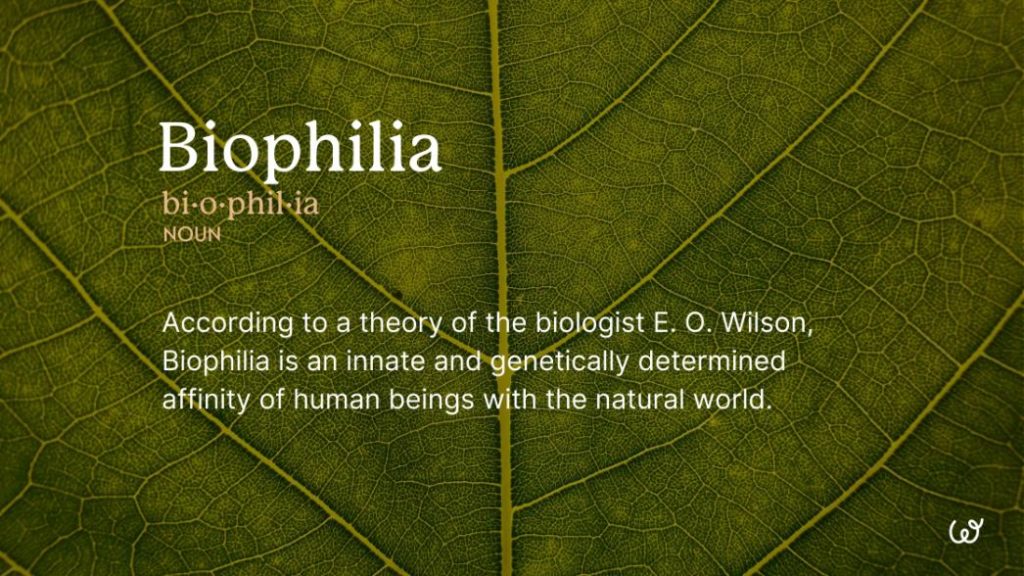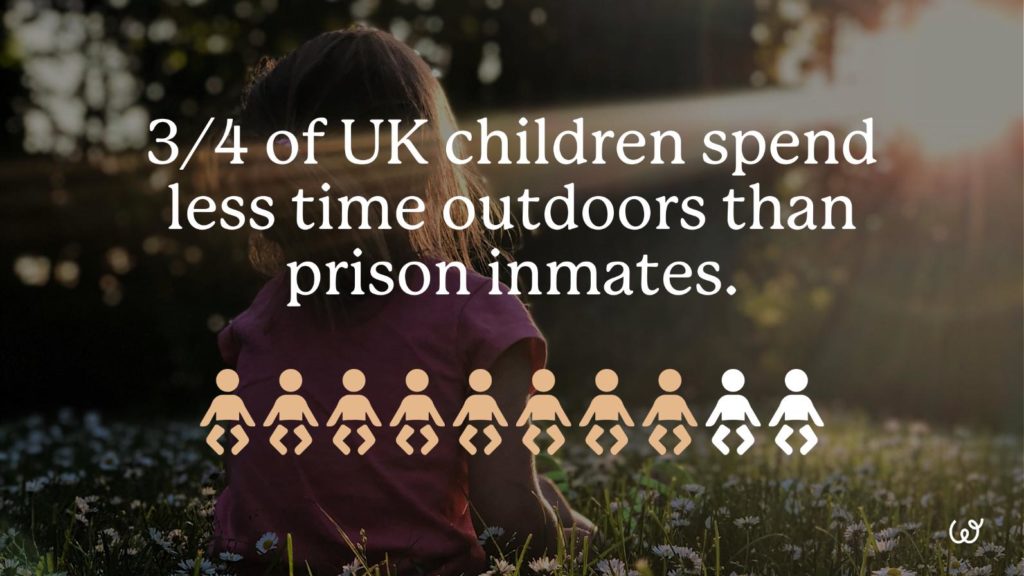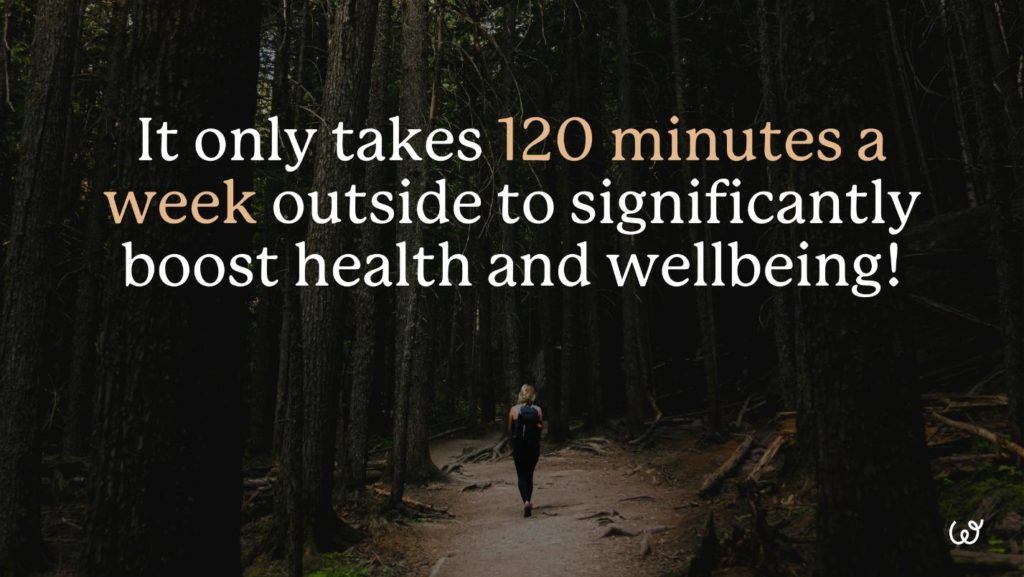Let’s face it: it’d be naive of us to ignore the wild bond between nature and mental health statistics. Have you ever noticed how the natural outdoor environment ignites your emotions? The sense of solitude when you sight silhouetted mountains against the setting sun or the feelings of recentre when grains of sand soothe themselves between your toes.
The psychological benefits of being in nature are undeniable, but what exactly is the psychology behind spending time outdoors and its impact on our mental health?
According to the World Health Organisation, mental health underpins our ability to make decisions, build relationships, and shape the world we live in. This is associated with the concept of biophilia, one which draws us toward nature as if it were an essential part of our existence.
No wonder hiking off the beaten track improves brain fog, allowing you to make informed decisions. It also builds relationships through community activities like gardening and helps shape the world we live in through biodiversity initiatives. Are you starting to see the correlation? Here are some wild numbers that will convince you.
How does nature impact your mental health?
The biophilia hypothesis

Do you feel a profound fascination with the sound of thunderstorms or shades of a sunset? Well, you’re not alone. The biophilia hypothesis proves to explain our innate attraction to nature. The theory suggests that we, as humans, possess an instinctive attraction to nature and alternate life forms. Even our idiomatic expressions like “as blind as a bat” or ’eager beaver’ reflect our deep-rooted connection to the natural world. Theory or not, the bond is undeniable.
Unsurprisingly, the biophilia hypothesis is seen to support the idea that humans are healthier when they share a connection to nature. It’s no wonder that nature is widely used as a tool to heal us mentally and physically. Studies have found that spending time in natural environments can elevate mood, decrease feelings of anxiety and depression, plus increase feelings of happiness.
As our understanding and appreciation of the natural world deepen, so does our desire to participate in its preservation. Embracing nature not only fosters personal well-being but empowers us to contribute to its vitality, too. It’s a win-win situation!
The cognitive benefits of being in the wild
It’s simple to see how stepping into nature allows our brains to bloom. Away from the blue light of our screens and distractions of daily life, nature is the perfect backdrop for our minds to unwind and recharge. Being outdoors allows nature to become the muse that sparks our imagination and fuels the flow of our creative juices, unlocking a door to mental clarity and inspiration.
It doesn’t stop there, spending time in nature has also been shown to reduce stress levels and elevate emotional well-being. Do you remember the feeling of spotting your first double rainbow? How about the tranquility of noticing a full moon? Providing peace and serenity, nature can lower cortisol levels and alleviate feelings of anxiety to improve mental fitness.
When we take time to appreciate the environment that surrounds us, it really allows us to foster this connection and become part of something wilder than we can imagine.
The emotional effects nature has on us
Ordinarily, 85% of adults said that being in nature brings them happiness, a sentiment widely shared amongst many. Sunlight, in its natural form, serves as a catalyst for the production of serotonin in our brains – the very chemical responsible for keeping our emotional equilibrium in check. It’s no surprise that when sunlight bathes your skin, inhaling a breath of fresh air can feel like a powerful elixir nurturing your inner self.
Therefore, it’s to be expected that 91% of adults agree that green and natural spaces positively contribute to our mental health. The explosion of senses that are triggered by being in the wild can impose relaxation on the mind, boosting mental health. Think: an aroma of smells, a symphony of sounds, and awe-inspiring sights. It’s indisputable that being outside allows us to deeper connect with our environment, offering a refreshing diversion from daily anxieties.
Simply stepping outside and absorbing a tiny dose of sunlight can work wonders, instantly boosting our mood and amplifying our energy levels. It’s simple but super effective!
The psychological perks of surrounding yourself with nature
You’re familiar with vitamin D, right? It’s the essential nutrient that plays a vital role in keeping our bones strong and enhancing our immune system to fight off infections. Interestingly, it’s also linked to better brain health and an elevated emotional state. This underscores just one of the psychological benefits of being in nature, with exposure to sunlight serving as its primary source. And let’s not forget, it’s FREE!
Although breaking a sweat in the great outdoors isn’t mandatory to enjoy its perks, surrounding yourself with nature can hugely influence levels of motivation. Ditch the confines of your crowded fitness class and embrace outdoor exercise with us! Whether it’s venturing off the beaten track or experimenting with exciting hobbies like paddle boarding or meditation, the outdoors promotes an irresistible allure.
Just as flora and fauna contribute to the ecological balance of natural habitat, the restorative qualities of nature play a crucial role in maintaining optimal mental fitness. Think of it as nature’s way of giving us a big hug! Spending time outside helps us bounce back from the ups and downs of life with a clearer mind, a happier heart, and endless psychological perks.
What are the latest nature and mental health statistics revealing?
Wild statistics about our relationship with nature

- 62% of adults reported that they “feel part of nature”.
- 37% of British adults say they have no connection to wildlife in their everyday life.
- Three-quarters of UK children spend less time outdoors than prison inmates.
- 10% of adults said they could only manage to identify one type of tree by sight.
- 8% of adults said they can’t remember the last time they went for a walk and saw wildlife.
Numbers regarding our mental health
- 1 in 4 people will experience a mental health problem of some kind each year in England.
- Half of all mental health problems are established by the age of 14.
- It’s estimated that 1 in 3 women experience major depression in their lives.
- 1 in 5 men are also estimated to experience major depression in their lives.
- 10% of the global population is estimated to live with a diagnosed mental health disorder.
Statistics proving the correlation between nature and mental health

- It only takes 120 minutes a week outside to boost health and well-being significantly.
- 85% of adults stated that being in nature brings them feelings of happiness.
- 45% of UK adults agreed that visiting green spaces helped them to cope during the pandemic.
- 91% of adults said that natural spaces have a positive impact on mental health and well-being.
- Those spending 2-3 hours a week in nature are 20% more likely to report high overall satisfaction.
So, you’re familiar with anxiety. What about eco-anxiety? Unfortunately, it isn’t just another buzzword. In our recent article, we look at the eco-anxiety symptoms and support mental fitness with our top actions to soothe climate-induced stress.
Want more? Delve deeper into the fascinating statistics about eco-anxiety’s effect on us and the world around us in our latest study. The findings are WILD!
How can you feel the positive effects of nature on your mental health through ecotherapy?
Search for nature spots close to home
We understand that a fluctuating mental state can make it hard to embrace simple tasks such as making your bed or brushing your hair. Too often, recommendations for combatting this to achieve the psychological benefits of being in nature suggest moving fast and far. Let’s take a step back and focus on being deliberate when exploring new ways to interact with nature. Fortunately, not everyone has to climb Mt. Kilimanjaro to reap the benefits of being outdoors; simply being in nature can do the job!
Did you know research from Japan on forest bathing found that simply sitting passively in nature can work wonders for both your body and mind? Yes, even taking in the scenery from your local park bench can give your well-being a boost. So next time you step outside, why not take a moment to soak in the natural goodness that’s only an arm’s length away from home? Your mind and body will thank you for it!
Go into the wild as often as you can
OK, so an hour a day might be unrealistic for those with a busy schedule – what if we proposed just 20 minutes of ecotherapy a week? As stated previously, studies suggest that you only have to spend 120 minutes a week outside to boost your health and well-being significantly. 20 × 7 = ….? We’ll let you do the maths!
Now, tell us truthfully, do you have 20 minutes to scroll before bed mindlessly? Like most, it’s the first and last thing we do with our days. We challenge you to exchange this artificial light for the real deal. Scheduling time in our day to unplug from the digital scene is calming and helps us reconnect with the natural world.
Whether it’s spending your lunchtime in the garden or swapping your sweaty gym session for an outdoor run, it’s important to note that going into the wild as often as you can has a positive effect on your mental health.
Include nature activities in your daily routine
If you think that gardening is an activity only retirees have time for, you’re wrong. It’s a fantastic pastime for anyone wishing to unwind and de-stress after a busy day. Spending a little TLC on your garden or indoor plants isn’t just about keeping them alive – it’s about nurturing a connection with nature. It is one that shows to be incredibly fulfilling!
Whether you listen to the gentle rustle of leaves in the breeze or connect with the earth through an act of grounding, mindfulness is a great opportunity to incorporate nature-based learning into your daily routine. These small moments of nature appreciation may seem insignificant, but they can have a big impact on your mental health. Taking short breaks to soak in the beauty of the natural world is like hitting the reset button for your mind and soul.
🐾 Check out our nature-friendly Valentine’s Day activity list for some inspiration!
Travel off the beaten track
In today’s overly touristy world, we have become accustomed to convenience. Instead of crafting our own narratives, we find ourselves merely purchasing someone else’s fairytale. Not only is this boring, it provides little resilience and impacts your ability to connect autonomously with your natural environment.
When you venture off the beaten track, you’re more likely to engage with local communities, traditions, and lifestyles that can influence a positive mindset and enhance gratitude. Remember, it’s not just about the destination, it’s about the journey. Mentally, physically, and spiritually!
Learn more about nature
For centuries, nature has become our inspiration for innovation. Less painful needles, wind turbines, or the ability to fly are all innovations that were hugely influenced by nature. Guess what, nature can also help us in the current mental health crisis! Reading books, listening to nature-related podcasts, or studying digitally are a few ways we recommend learning more about nature. This understanding of nature will deepen your understanding and foster a stronger sense of connection to the world around you. Why not start with our Wild Guides?
Isn’t it incredible how much we can learn from nature? At Wildya, our educational approach transcends the four walls of a traditional classroom. We make the natural world interactive, easily accessible, and adapted to the way you feel, all through our online community that really works. As nature enthusiasts, we may be biased, but the benefits of learning in nature are undeniable!
Exploring the latest data on nature and mental health statistics opens doors to a deeper understanding of the profound psychological benefits of being in nature. It fosters a comforting sense of connection and unity with the natural world. Reminding us that we are part of a larger ecosystem where our well-being is intertwined with the environment that surrounds us.
While mental health often carries a stigma, the numbers we’ve discussed today paint a different picture – one filled with positivity and hope. They shed light on the transformative power of nature, highlighting its ability to uplift and nurture our mental fitness. So, as you embark on this journey of self-discovery and connection with nature, remember that you’re not alone.
Strengthen your bond with nature by joining our wild community. Take charge of your eco-anxiety through our engaging nature-based learning experience.


